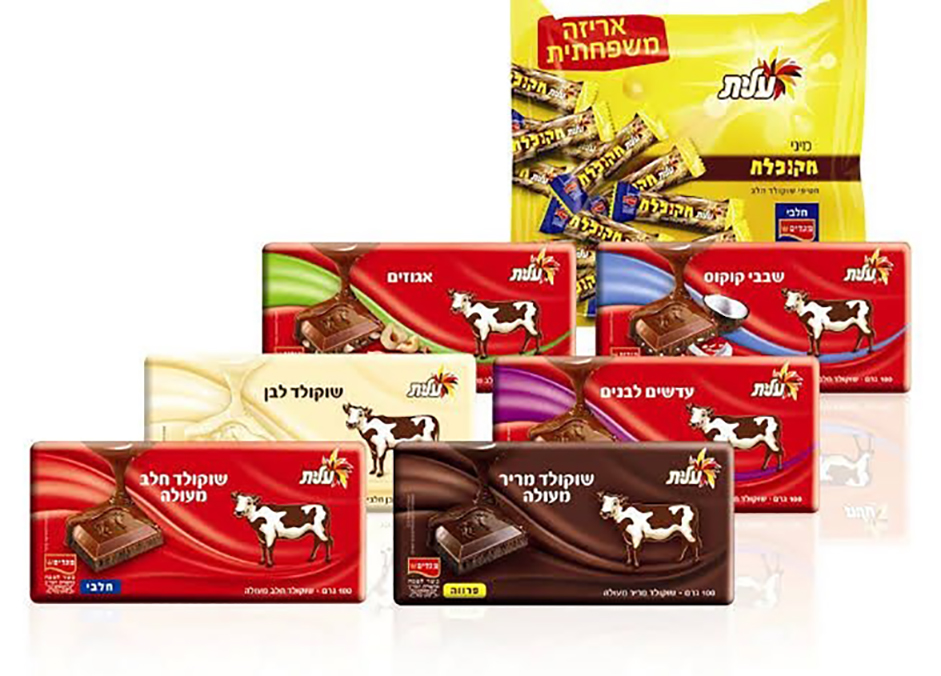
Banner

Elite chocolate products recalled worldwide
Erring on the side of caution, the Strauss Group, one of Israel’s largest food manufacturers, announced on 27 April that it was recalling all Elite chocolate products worldwide due to concerns about salmonella contamination.
A letter from Michal Vice, the export director of Strauss Israel, assured Geffen Imports, which brings the chocolates to South Africa, that the exported items in the country were safe. The letter was sent on 26 April. However, in a follow-up letter sent to Geffen’s managing director, Fran Ungar, on 27 April, the company’s management team said it had decided to mitigate all risks, low as they may be, and remove all products produced in the confectionary facility from shelves.
The recall is for products of the following brands: Elite Chocolate, Elite Cakes, Elite Wafers, Energy Grain Snacks, Energy Chocolate Rice Cakes, Gum and Toffee Candies, with all expiration dates. Consumers are asked not to consume these products.
“Strauss Israel will restart the confectionary production facility in Nof Hagalil, and will resume activity only when all faults are amended and the products are absolutely safe to consume. The company is voluntarily extending the recall policy to all the products produced in the facility,” said the letter.
The company is closing production in the confectionary facility and will resume activity only after a complete restart. Recently received laboratory results show that there’s preliminary concern about contamination (there are no final results yet) of salmonella in two single samples of chocolate out of 270 samples tested. These products were part of the products that were shipped to stores and were included in a recall that was instated at the beginning of the week.
Says Eyal Dror, the chief executive of Strauss Israel, “In light of our intent to ensure public safety, and in order to make sure there’s no confusion as to which product can be consumed and which not, we’ve decided this morning [27 April], along with the food authority in the Israeli Ministry of Health, to expand the collection and recall of products, although up to this point we don’t have any solid indication of an issue in these products. We won’t take any risk, as expected of us.
“This is undoubtedly a fundamental event for Strauss Israel, a producer and manufacturer of leading loved, nostalgic, Israeli brands whose guiding principles are responsibility and transparency. The company’s management would like to take this opportunity to apologise deeply to our consumers, customers, and partners for this grave incident.”
Ungar emphasises that no salmonella has been found in finished products, and consumers shouldn’t be worried if they have eaten them. She says it’s unlikely that stock in South Africa is contaminated, as it was imported in December 2021, and asks that consumers keep any Elite products in a separate area in their home and wait for instructions on how to return them and receive credits or reimbursement in the next few days.
Says KosherWorld’s Joel Back, “In light of the global recall, we’re waiting for guidance as to how the procedure for returns must be addressed. It’s important to watch the press and not just return the goods until clear guidelines have been issued by Strauss, which we expect shortly.”
The Israeli health ministry said that as of Monday, it was unaware of Israelis who had been infected by salmonella bacteria as a result of consuming one of the products.
Typically, people with salmonella infection have no symptoms. Others develop diarrhoea, fever, and abdominal cramps within eight to 72 hours. Most healthy people recover within a few days. In some cases, the diarrhoea associated with salmonella infection can be so dehydrating, it needs medical attention. Life-threatening complications may also develop if the infection spreads beyond the intestines.
The Elite recall may be the largest food recall ever to take place in Israel, causing Strauss Group shares to fall by about 2.85%.
According to Israeli media, the company may face a public backlash after reports emerged that the food manufacturing conglomerate became aware of the health hazard last week (during Pesach), and waited days to notify the public.
According to the reports, Strauss didn’t order the recall before getting the final test results on the products, which were delayed due to Pesach and therefore received only on Sunday, 24 April.
In an interview on Channel 12 on Monday evening, Dror apologised to the Israeli public but insisted the company had done nothing wrong.
“Last week, we received an initial indication of salmonella in our liquid chocolate tanks, which is the raw material we use to make our products,” he said. “At that moment, we stopped the process and notified the health ministry, before launching a series of tests.”
“It wasn’t until yesterday morning [Sunday 24 April] that we received information that indicated that the bacteria might be found in final products, which didn’t leave the factory,” he said, “meaning that at that point, we still didn’t know of any product in the market that was even suspected of containing salmonella.”
Asked why the company failed to take immediate action to notify the public once it had an indication of the health hazard, Dror said, “I can understand that some people are disappointed in us, angry at us, and I would like to offer my apology. You need to understand that beyond working with the health ministry in full transparency, there’s a process that takes time. Many times you have suspicions that are later refuted. I can honestly say that everything we did was done with genuine concern for the public’s health.”
Rabbi Dovi Goldstein of the Kosher Desk at the South African Beth Din said, “We don’t certify or import Strauss/Elite chocolates so unfortunately cannot comment.”




